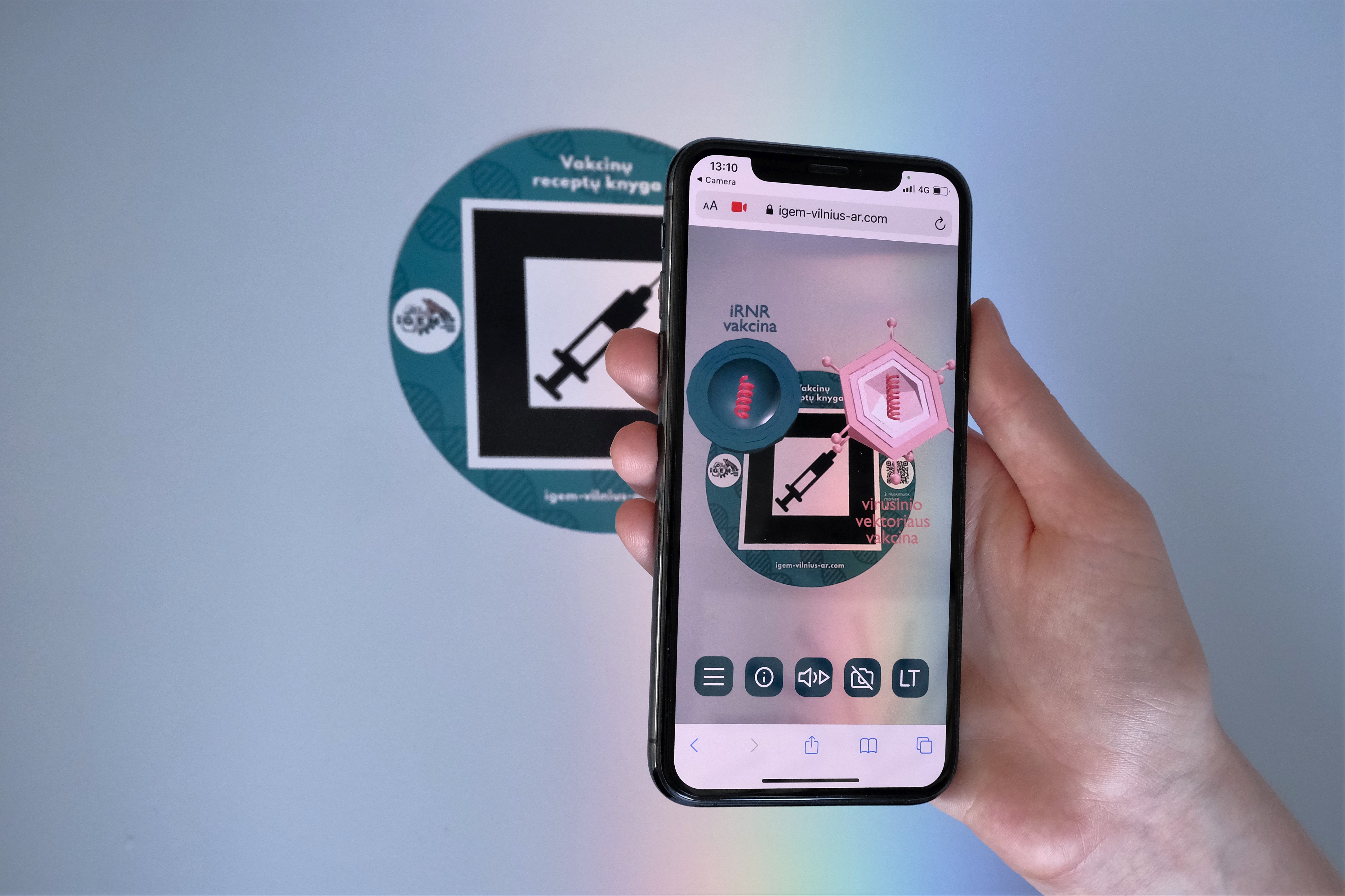Augmented Reality Project 6th SinBio Sense will transfer Synthetic Biology to Phone Screens
 This week saw the launching of another innovative, ongoing project of the Vilnius-Lithuania iGEM (global synthetic biology competition) team, aiming to introduce the public to synthetic biology. Using augmented reality technology, the developers of the platform invite to learn the most important concepts of the discipline.
This week saw the launching of another innovative, ongoing project of the Vilnius-Lithuania iGEM (global synthetic biology competition) team, aiming to introduce the public to synthetic biology. Using augmented reality technology, the developers of the platform invite to learn the most important concepts of the discipline.
Augmented reality models will help to understand the still-relevant coronavirus and vaccines, and introduce more complicated concepts of synthetic biology, bioinformatics, protein synthesis, etc. Invisible cellular processes and other points of interest will be accessible by scanning the marker with the QR code.
Markers will be available on Vilnius public transport, Vilnius University premises, and city cafes (the list is available on the project page). However, the project will not be limited to the spaces of the capital: the team also cooperates with other Lithuanian municipalities. Dissemination among other universities abroad is also planned.
Those unable to access the markers live or use the camera will find models and all relevant information on the project page. If you would like to implement the project in your environment: municipality, workplace, school or any other institution – please contact .
iGEM (International Genetically Engineered Machine) is an annual international academic competition to promote the advancement of synthetic biology. Interdisciplinary teams of university students solve global problems in medicine, food industry, energy, and other relevant fields. One of the parts of the competition is education and public involvement activities. The project 6th SinBio Sense is one of the educational activities of the Vilnius-Lithuania iGEM team.
Vilnius-Lithuania iGEM members believe that synthetic biology is one of the science disciplines that will shape our future. It is a young field of science that combines the principles of information technology, engineering, and life sciences. It aims to develop, improve, and adapt a variety of new biological components, functions, or biological systems for the practical application of previously non-existent biological devices and products.
The team aims to make this discipline as understandable to everyone as possible: not only to bust myths arising from ignorance but also to engage promising students and possibly encourage them to choose life sciences in the future.